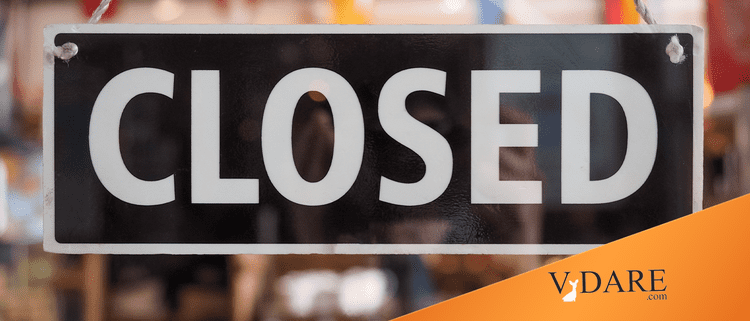
04/30/2020
Let’s say you are an ear, nose & throat specialist doctor. After years of paying your dues, in early 2020 you made the big leap: You quit your well-paid job, took out a big loan, signed a lengthy lease, hired a half dozen employees, and on February 1, you opened your own practice. Sure, times might be a little tough for the first few years as you build a reputation, but you are living the American Dream.
Now three months later you are wondering if you will go bankrupt because most patients would rather not see an ENT doc if they can avoid it. Meanwhile, your brother-in-law, who owns a proctology clinic, is getting by and figures he’ll be doing well again by the end of summer. Patients keep calling him up for appointments. They don’t seem too worried. He just asked if he could offer a job to your best nurse because, clearly, you won’t be needing her for a while.
Maybe you should kick yourself for your moral failing in choosing to specialize in ENT instead of in proctology, as your brother-in-law keeps implying, but … how were you supposed to know?
The extreme randomness of this disaster is striking. It’s not like AIDS where the main victims were needle junkies and bathhouse patrons. This one tends to strike hardest at warm Italian families in which children visit their parents and grandparents, at people who sing enthusiastically in church, at Germans who like doing their people’s traditional dances, at vigorous skiers, and so forth.
Nor are the economic effects like 2008 where people with a higher risk-reward preference tended to get burned worse. This one just seems random. Almost nobody had a plan ahead of time for what to do if everybody stays home for a few months. It’s reassuring to think that some nefarious set of insiders must have had an evil master plan, but in truth nobody seems to have had a clue. For example, here is the 2016 National Security Council’s Playbook for Early Response to High-Consequence Emerging Infectious Disease Threats and Biological Incidents.
I haven’t read the whole thing, but I don’t see much in the way of thinking about the economic aspects. If I search for terms like “shut” or “close” or “jobs” or “rent,” I don’t find much.
Nor have I even heard of many science fiction tales relevant to our current predicament. There are some memorable depictions of an apocalyptic pandemic like Andromeda Strain and Twelve Monkeys, but I’ve never heard of a sci-fi story or movie about an only moderately disastrous pandemic like this one, where it’s unclear whether the disease or the economic cure will be worse.
A few organizations prudently planned ahead. For example, the All England Lawn Tennis Club has been paying $2 million per year to insure against their Wimbledon tournament being canceled due to a pandemic. They expect to collect $141 million (assuming their insurance companies survive). But the vast majority of organizations and individuals did not to do this, so they have turned to their governments for help.
The various gigantic bailouts passed abruptly by Congress with little deliberation will benefit some people and organizations, especially those who had particularly persuasive and fast-moving lobbyists, and fail to help others. Some survivor firms will happen to have the resources to buy up roadkill enterprises at fire sale prices and emerge even richer.
One thing we can predict is that the eventual distribution of wealth that shakes out of these sudden events will strike many as lacking in legitimacy. After all, who goes broke and who gets rich out of 2020 doesn’t seem to have much to do with moral behavior. This does not bode well for future political stability.
This is a content archive of VDARE.com, which Letitia James forced off of the Internet using lawfare.